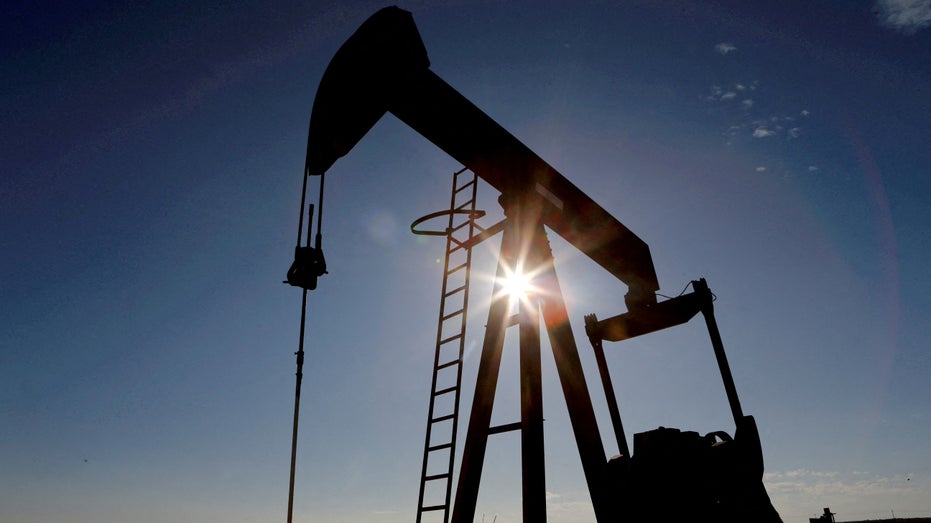
Houthi attacks on shipping in the Red Sea risk reigniting global supply chain crisis
Last Updated on January 13, 2024 by Admin
[ad_1]
Maritime Institute of Technology instructor Capt. James Staples, who has personally responded to pirates, breaks down the Houthi Red Sea attacks on ‘The Claman Countdown.’
Attacks by the Iran-backed Houthi militants on commercial shipping vessels in the Red Sea, a critical juncture point for world trade, risk reigniting a supply chain crisis just as the global economy begins to recover from high inflation, chronic shortages and bottlenecks.
Shipping costs are already on the rise eight weeks after the Yemeni rebel group first began targeting ships sailing through the Red Sea and the Suez Canal.
About 15% of world shipping traffic, including 30% of global container trade, passes through the Suez Canal. But to avoid being attacked or having their cargo stolen, many ships are instead sailing around the Cape of Good Hope, which is the long way around the continent of Africa.
“This has added significant cost, and also significant delays, to shipments that are coming from the Middle East, to and from Europe, and other regions in that area, that rely on the Suez Canal a great deal,” Robert Handfield, a professor of operations and supply chain management at North Carolina State University, told FOX Business.
US-UK COALITION STRIKE IRAN-BACKED HOUTHI TARGETS IN YEMEN AFTER SPATE OF SHIP ATTACKS IN RED SEA
A cargo ship crosses the Suez Canal, one of the most critical human-made waterways, in Ismailia, Egypt, on Dec. 29, 2023. (Photo by Fareed Kotb/Anadolu via Getty Images / Getty Images)
Ship traffic tumbled about 30% in the period between Jan. 1 and Jan. 11 when compared with the same time one year ago, according to Suez Canal Authority chief Osama Rabie. The number of vessels that traveled through the canal this year fell to 544 so far – a steep drop from the 777 recorded during the same period in 2023.
Container shipping giant Maersk suspended use of the Red Sea and Suez Canal at the start of the year after one of its vessels was attacked by the Houthi militants. The company said it would divert all ships around Africa for the “foreseeable future,” and has warned of “significant” consequences for global growth as a result of the disruptions.
HOUTHIS VOW TO KEEP ATTACKING SHIPS IN RED SEA DESPITE FORMATION OF US-LED TASK FORCE
UBS has estimated that routing ships around Africa – which increases the journey length by about two and a half weeks – reduces an Asia-Europe trip’s effective capacity by about 25%.
That, in turn, is pushing up the price of shipping. Rates for shipping goods from Asia to Northern Europe are up 173% compared to before the diversion of vessels in the region began, according to Freightos Terminal data. Carriers have also announced surcharges ranging from $500 to as much as $2,700 per container.
Drought-like conditions in the Panama Canal are compounding the pain from the attacks in the Red Sea. The Panama Canal has restricted the number of ships going through it due to extremely low levels of water, further backing up global shipments, Handfield said.
The spike in shipping costs and the potential snarls in global trade routes are stoking fears about a resurgence in inflation, just as price pressures within the economy finally begin to abate. Oil prices jumped on Friday, one day after the United States and the United Kingdom led a military response to the attacks.

The sun is seen behind a crude oil pump jack in the Permian Basin in Loving County, Texas, on Nov. 22, 2019. (REUTERS/Angus Mordant//File Photo / Reuters Photos)
Bank of America analysts warned in a note this week that the disruptions to the Red Sea and Suez Canal as well as the Panama Canal risk delaying recent declines in inflation.
“The scope for further declines may be blunted in part by rising shipping costs due to issues in the Red Sea and low water levels in the Panama Canal,” they wrote.
GET FOX BUSINESS ON THE GO BY CLICKING HERE
Still, Handfield said the impact on American consumers remains minimal, although there could be “some price increases” in certain categories of goods and services – like some commodities coming from the region including rare earth minerals, chemicals and certain types of grain.
“There isn’t an indication that it’s going to have a major impact [on prices] yet, at least not in the U.S.,” Handfield said. “It very well could impact more countries in Europe and so forth.”
[ad_2]
Source link




